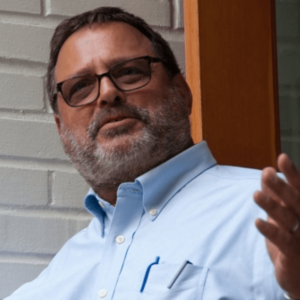The latest iteration of the Oregon Business Plan prepared for the 2011 Leadership Summit, a gathering of Oregon business and political leaders, is remarkable for what it leaves out. Put together by the Oregon Business Council, this “policy playbook” not once mentions income inequality or poverty, even as it purports to discuss Oregon’s “economic progress and challenges.”
Prior summit roadmaps have also ignored the inequities of our economic system, but this year the environment is different. The document reads as if the Oregon Business Council failed to notice Occupy Portland’s encampments in the heart of Portland’s business district. Why does the Oregon Business Council find it so difficult to acknowledge the extent to which economic gains of the past few decades have gone to a relative few and left Oregon with more poor?
Over the past three decades, those at the top of Oregon’s income scale — the wealthiest 1 percent — collectively have seen their income soar, while those in the middle have seen their income erode. From 1979 to 2009, the most recent year with data available, the average income for Oregon’s wealthiest 1 percent nearly doubled to about $635,000. Yet over the same time period, the income of the typical Oregonian declined by about 10 percent to $30,327 in 2009.
So, on average, Oregon’s wealthiest top 1 percent were enjoying 21 times the income of a typical Oregonian by 2009. To belong to Oregon’s top 1 percent that year, you would have had to make at least $278,150.
But that’s peanuts compared to the income gains of Oregon’s wealthiest one-tenth of 1 percent, the wealthiest 1 out of every 1,000. This privileged group at the top — roughly 1,600 of Oregon’s 1.6 million taxpayers — had an average income of $2.5 million in 2009, more than triple what it was 30 years earlier.
It is this elite group that would reap the rewards of any tax cut on income from capital gains, a key part of the Oregon Business Plan’s proposal to reform our tax system.
In 2009, the top one-tenth of 1 percent amassed nearly half of all capital gains income. The rest of the top 1 percent collected another 22 percent.
Thus, the top 1 percent reaped a little over two-thirds of all capital gains income in Oregon. The remaining 99 percent (more than 1.5 million tax filers) were left to share the remaining third.
Picture the disparity of capital gains income by imagining a pizza with 10 slices and 1,000 people in the room. Just one person (“Mr. Top One-Tenth of 1 Percent”) takes five slices and leaves. Nine other people (“The Rest of the Top 1 Percent Family”) share two slices as they exit the room. And the other 990 people (“The 99 Percent”) are left to divvy up the remaining three slices.
Still think most Oregonians would get much benefit from a capital gains tax cut?
Since the recession, life has gotten tougher for many Oregonians. While Oregon’s wealthy bask in swollen earnings and capital gains income, an increasing share of Oregonians cannot make ends meet.
Over the course of the recession, Oregon’s poverty rate has risen every year. From 2007 to 2010, nearly 120,000 more Oregonians fell below the poverty line. And many Oregonians who earn enough to rise above the poverty line still struggle to make ends meet.
Income inequality and poverty are central to what ails Oregon’s economy. As the chairman of a Boston-based global investment management firm put it recently, “You can’t run the economy on BMWs alone. If the average person is in a pickle, how do you have a healthy economy?”
That is the question those who gather each year for the Oregon Business Plan’s Leadership Summit ought to be asking. Until they do, however, it will be business as usual — to the detriment of the great majority of Oregonians.









